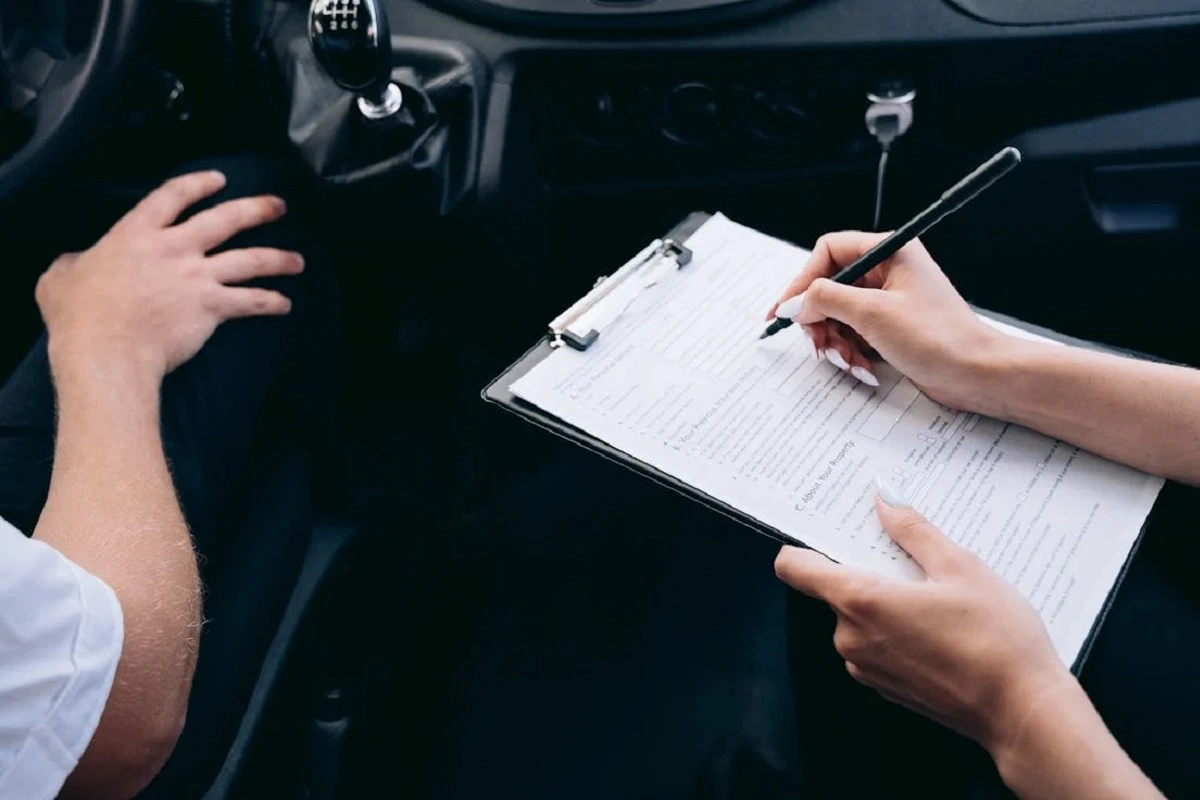How to renew your road tax in Thailand

Navigating the process of renewing road tax in Thailand might seem daunting at first, especially if you’re unfamiliar with the local procedures. Yet, staying on top of this crucial task ensures your vehicle remains legally compliant and contributes to the upkeep of Thailand’s road infrastructure. With the right preparation, you can tackle language barriers and unfamiliar procedures with ease.
Whether you choose to renew online through the DLT eService or in person at a DLT office or authorised bank, having the necessary documents ready is key. Starting the renewal process early is always a smart move. This guide will equip you with essential tips to ensure a hassle-free experience.
Understanding road tax in Thailand
Road tax, a government-imposed fee, applies to all motor vehicles in Thailand, including cars, motorcycles, and trucks. It ensures vehicles remain legally compliant while contributing to road infrastructure. The tax amount varies based on vehicle type, size, and engine capacity. Paying road tax is crucial to keep your vehicle registration valid and avoid legal issues.
Operating without it can lead to fines, penalties, or even impoundment. The funds collected maintain roads, ensuring safer and more efficient travel for all road users. Regular payment ensures vehicles undergo inspections, reducing pollution and maintaining environmental standards. Understanding these components helps you navigate the renewal process smoothly.
Necessary documents and preparations

When you renew your road tax in Thailand, specific documents ensure the process is smooth. The required documents differ based on your status.
For individuals
| Document Type | Requirement |
|---|---|
| National ID Card | Present two certified copies of your valid national ID card. |
| Civil Servant Card | If applicable, submit two certified copies of your civil servant card. |
| House Registration | Provide two certified copies of your house registration document. |
| Name or Surname Change | If your name has changed, include two certified copies of the relevant certificate. |
| Marriage or Divorce Certificate | Supply two certified copies if applicable. |
For foreigners
| Document Type | Requirement |
|---|---|
| Passport | Present a certified copy of your passport. |
| Visa | Include a certified copy of your visa. |
| Work Permit | Submit a certified copy of your valid work permit. |
For juristic persons
| Document Type | Requirement |
|---|---|
| Business Registration | Provide a copy of your business registration certificate issued within the last three months. |
| Authorised Director’s ID | Submit a copy of the national ID card of the authorised director. |
| Foreign Directors | For foreigners, supply certified copies of their passport, visa, and work permit. |
Certification and signatures
All documents require certification, and signatures should match those in the contract. Additionally, juristic documents must be signed by the authorised director and stamped with the company’s seal. Having these preparations checked ensures a seamless renewal of your road tax in Thailand.
A step-by-step guide to renewing road tax

Renewing road tax in Thailand involves a few key steps to ensure legal compliance and avoid penalties. Follow this detailed guide to navigate the process efficiently.
Step 1: Purchase compulsory insurance (Por Ror Bor)
The first requirement for renewing your road tax is purchasing compulsory motor insurance, commonly referred to as Por Ror Bor. This insurance is crucial for covering third-party liabilities in the event of an accident, ensuring that you’re legally protected while on the road.
You can easily obtain Por Ror Bor from a variety of providers, including insurance companies, banks, or directly at Department of Land Transport (DLT) offices. Make sure to compare options if you wish to find the best coverage for your needs at a competitive price. Without valid compulsory insurance, your road tax renewal cannot proceed.
Step 2: Complete a vehicle inspection (if required)
For vehicles that are over seven years old, a roadworthy inspection is mandatory before you can renew your road tax. These inspections are designed to verify that the vehicle meets safety and environmental standards, ensuring that it is safe to be on the road.
The inspection can be carried out at any authorised inspection centre or DLT-approved location. During this process, inspectors will examine various aspects of your vehicle, including brakes, lights, emissions, and overall mechanical condition. It’s advisable to schedule this inspection well ahead of your road tax renewal date to avoid any last-minute issues.
Step 3: Make payment for annual road tax
Once you have your insurance and have passed the vehicle inspection (if applicable), you can proceed to pay the road tax. The fee varies depending on factors such as your vehicle’s type and engine capacity. For instance, larger vehicles may incur higher fees compared to smaller ones.
You have the option to make the payment online via the DLT eService platform for convenience, or you can visit DLT offices or kiosks in person. If you prefer online payment, you will need to register and log in to the platform, provide the necessary details, and follow the prompts to complete the payment. It’s important to pay on time to avoid penalties or legal consequences such as fines or suspension of your already registered vehicles.
Step 4: Obtain your road tax sticker
After successfully paying the road tax, the final step is to obtain your road tax sticker. This sticker serves as proof that you have completed all necessary steps to legally operate your vehicle on Thai roads. Once issued, the road tax sticker must be affixed to your vehicle’s windshield or any clearly visible area, depending on the type of vehicle.
Displaying the sticker correctly is crucial, as traffic officers may conduct checks to ensure that all vehicles on the road have valid documentation. Failure to display the sticker could result in fines or penalties.
Additional tips for smooth road tax renewal
- Plan ahead: Start the renewal process early, especially if a vehicle inspection is needed. Inspections may take some time depending on the availability of authorised centres.
- Keep documents handy: Ensure that you have all the necessary documents, such as your current registration papers, proof of insurance, and inspection certificate, if applicable.
- Consider online options: Paying the road tax online can save you time and hassle. The DLT eService platform is designed to make this process more convenient, avoiding the need for physical visits to the DLT office.
Cost and fees associated with road tax
Understanding the costs involved when you renew road tax in Thailand is crucial. Fees depend on your vehicle’s type, size, and engine capacity.
| Vehicle Type | Engine Capacity | Annual Road Tax (THB) |
|---|---|---|
| Cars | Up to 600 cc | 0.5 baht per cc |
| 601 cc to 1,800 cc | 1.5 baht per cc | |
| Above 1,800 cc | 4 baht per cc | |
| Motorcycles | Up to 150 cc | 100 to 300 |
| Above 150 cc | 300 to 1,000 | |
| Trucks | Light trucks | 1,000 to 3,000 |
| Heavy trucks | 3,000 to 10,000 |
Online options for road tax renewal

Renew road tax in Thailand conveniently using online platforms. The Department of Land Transport (DLT) eService streamlines the process, saving time and effort. Accessible at dlt.go.th, the platform caters to various vehicle types including cars, motorcycles and trucks.
To renew your road tax online, ensure that your vehicle’s inspection is up-to-date if it’s required. This applies to cars over seven years old and motorcycles over five. Make sure there are no overdue taxes exceeding one year for your vehicle.
You’ll need several documents for a smooth renewal process. Have your vehicle registration book and the compulsory insurance certificate (Por Ror Bor) ready. If your vehicle inspection is necessary, include the certificate too. When you’re renewing online, the payment can be made via bank transfer or credit card, with corresponding fees of 20 Baht and a 2% credit card charge plus 7% VAT respectively.
Complete your payment and a road tax sticker will be mailed to your registered address. Ensure it is displayed on your windshield to avoid penalties. Stay informed about any changes in the road tax regulations through the DLT website to optimise the renewal process.
What happens if you don’t renew your road tax in Thailand
Failing to renew your road tax in Thailand can lead to a range of negative consequences. Firstly, you may incur late fees and penalties for not completing the renewal on time. These fines can accumulate the longer you delay, significantly increasing the cost of renewal. Additionally, if your road tax is not up to date, you risk having your vehicle’s registration suspended, which means you are not legally allowed to drive the vehicle on public roads.
If you are caught driving without valid road tax, you could face hefty fines and potentially have your vehicle impounded. Moreover, not having a valid road tax sticker displayed can also lead to difficulties in making insurance claims, as many insurers require proof of compliance for coverage to be valid. To avoid these issues, it is crucial to renew your road tax promptly each year.
Renewing your road tax in Thailand is crucial for legal compliance and supporting road infrastructure. By preparing the necessary documents and following the outlined steps, you can renew smoothly and avoid penalties. You can utilise online options for added convenience and ensure your vehicle remains roadworthy. Stay proactive and keep your road tax up to date.
FAQs about Renewing your road tax in Thailand
How often must I renew my road tax in Thailand?
Road tax in Thailand needs to be renewed annually. The exact renewal period is typically tied to your vehicle’s initial registration date, which means the road tax is due every 12 months.
Do I need to have my car inspected if it is relatively new?
No, vehicle inspection is not required if your car is less than 7 years old or if your motorcycle is less than 5 years old. The inspection is only mandatory for older vehicles.
What happens if I lose my vehicle registration book before renewing road tax?
If you've lost your vehicle registration book (Green Book), you must visit the Department of Land Transport to request a replacement before proceeding with the road tax renewal. You will need identification and proof of vehicle ownership to obtain a new book.
Is there a grace period for renewing road tax in Thailand?
Yes, there is a 30-day grace period after the road tax expiry date during which you can renew without additional penalties. After this period, late fees will be applied, and driving without a valid road tax sticker is considered illegal.
Can I renew road tax for multiple vehicles at the same time?
Yes, you can renew road tax for multiple vehicles simultaneously, provided you have all the necessary documents for each vehicle, including registration books, insurance certificates, and inspection reports (if applicable).
Latest Thailand News
Follow The Thaiger on Google News:


























